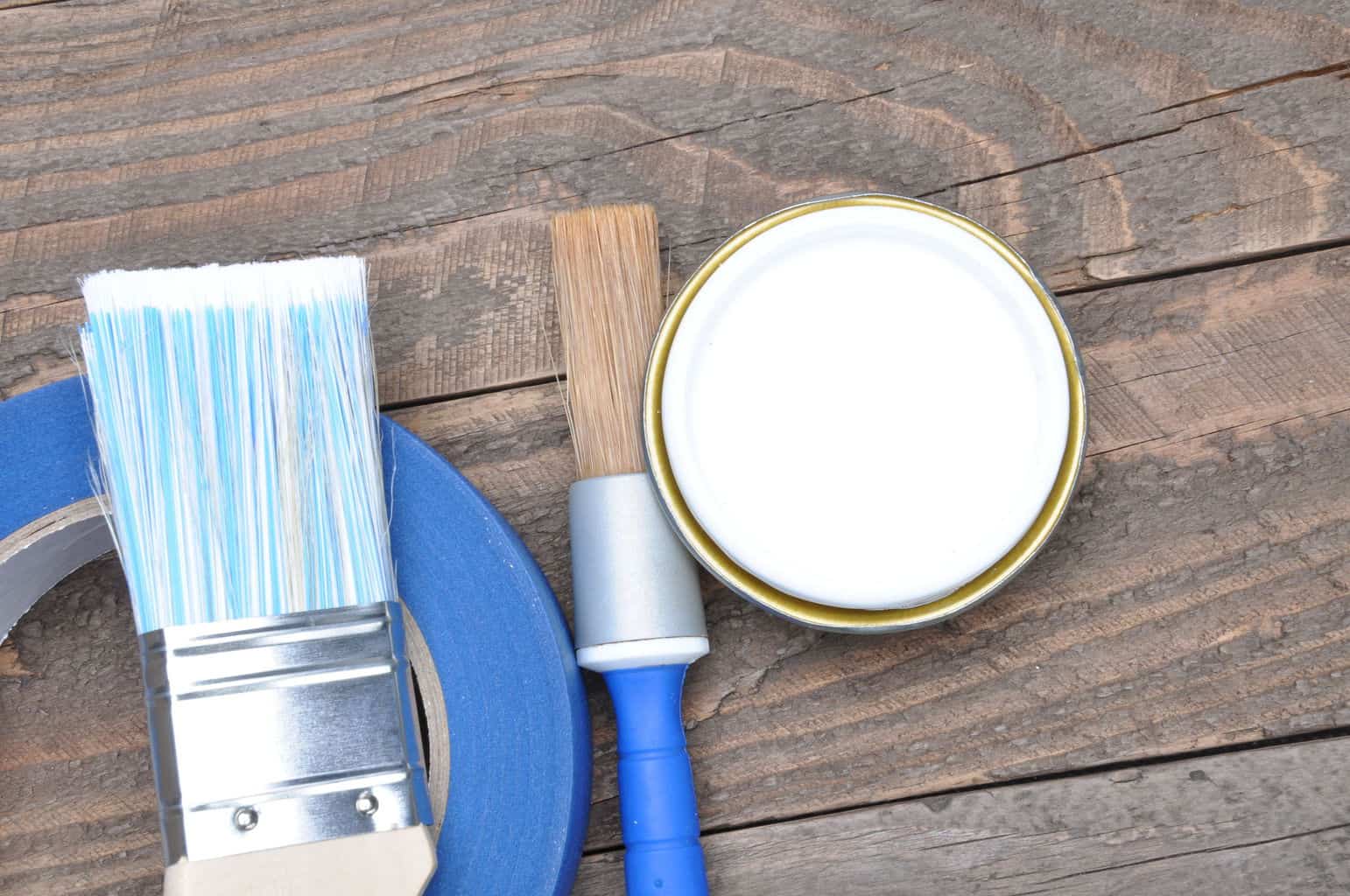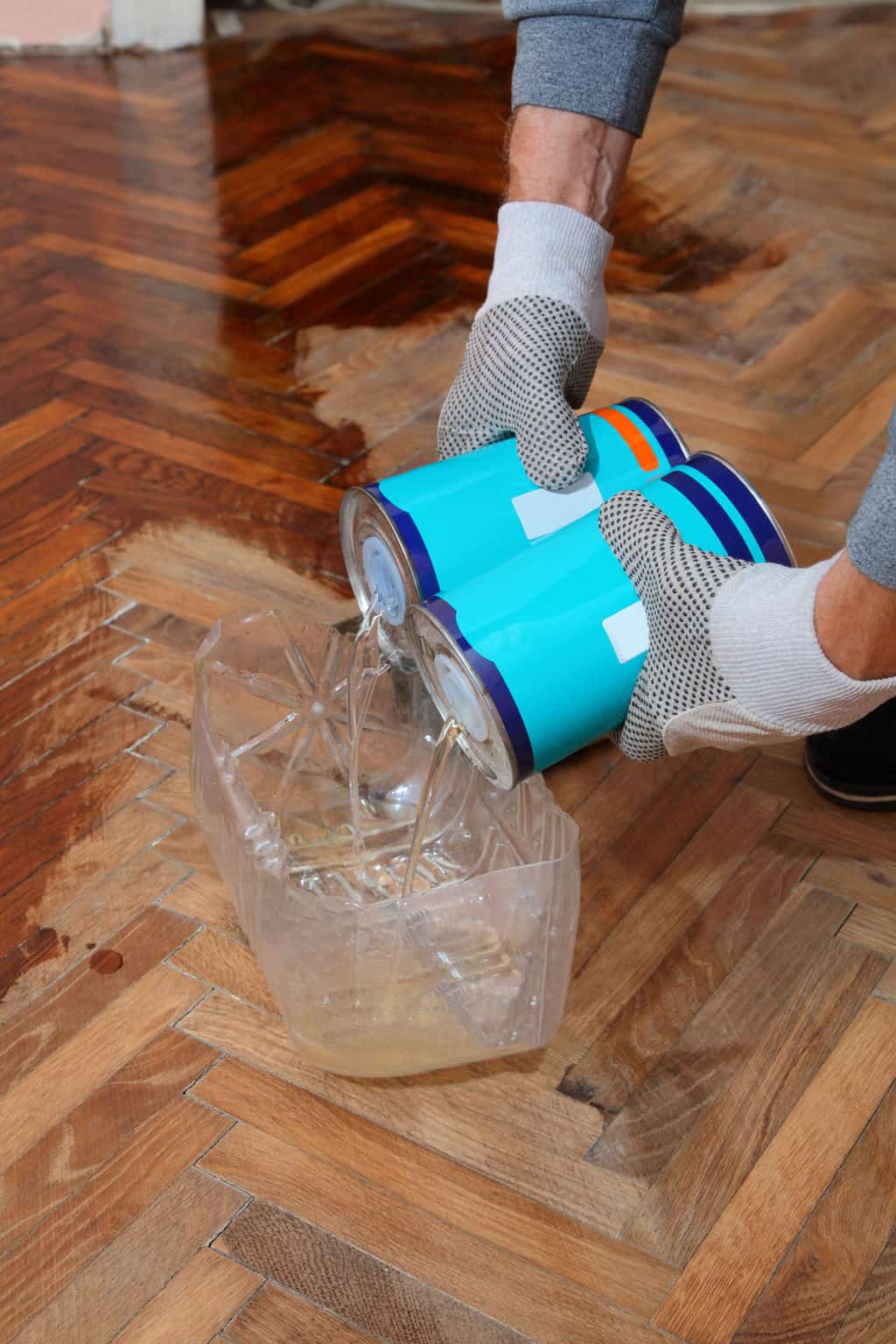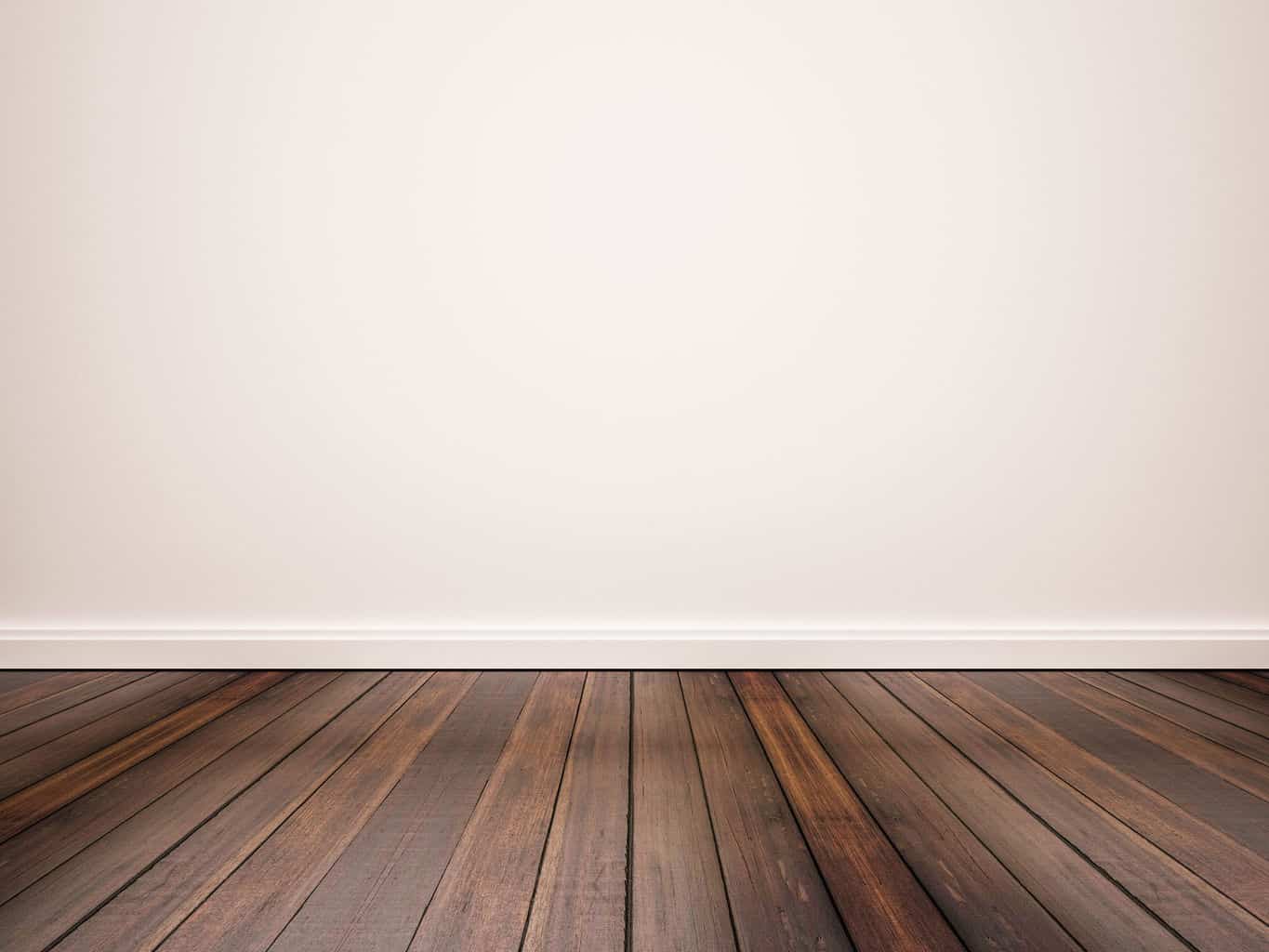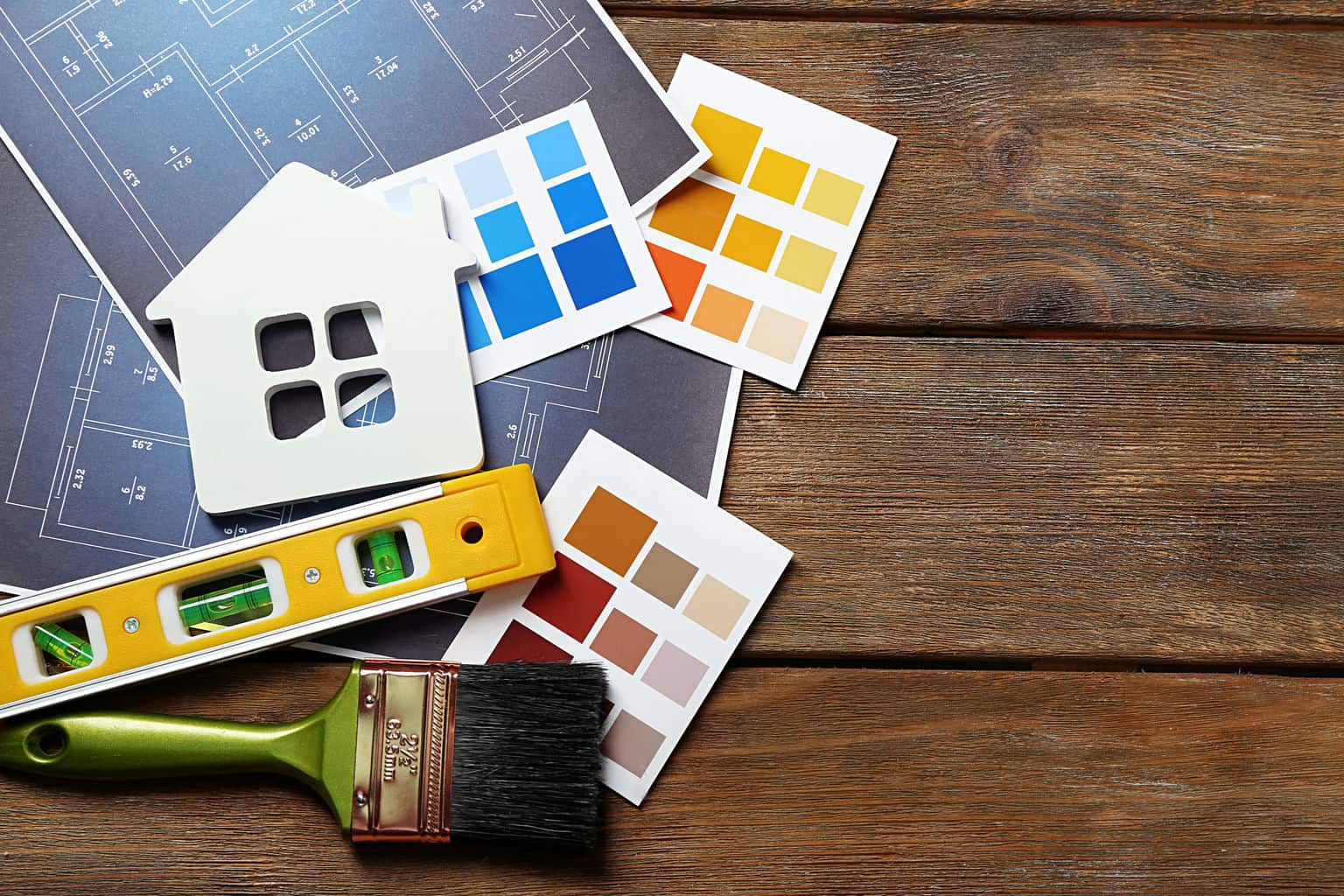Polyurethane is a protective coating that will add longevity to your floors. Polyurethane coating can be used in many different applications, from cabinets to furniture, and a coat of polyurethane will save you money that would otherwise be spent repairing and polishing your current floor. Check out the following article for information you should consider when investigating whether to use polyurethane on your flooring.
What Is Polyurethane?
The chemist Otto Bayer and his co-workers discovered polyurethane in 1937. Since its creation, polyurethane has been improved upon further. It has since been discovered that polyurethane can be used as a protectant for floors, but it can also be used as more than just a floor coating; because it can take many forms, the options for how polyurethane can be used are practically endless.

Polyurethane is created by a very scientific process. It begins by reacting a polyol (an alcohol with more than two reactive hydroxyl groups per molecule) with a di-isocyanate with of course the suitable additives to go along with it. What this means for the resulting product, in practical terms, is that polyurethane is not only a chemical resistant coating but also it can be turned into specialty adhesives, foams of all kinds, and more. Our interest here, obviously, is in polyurethane as used for a protectant and sealant on flooring.
Polyurethane is hands-down the toughest floor coating that you can find for any type of floor. It was created to resist chemicals, which means that it is strong enough to resist most liquids (drink spills, oil splashes, even paint splatters!) that hit your floor. This designed resistance makes cleaning polyurethane a breeze.
Another advantage of polyurethane is the way it strengthens floor surfaces for a longer life. This coating will protect various floor surfaces and keep them looking good longer than any other coating option will. You can comfortably use it on any floors that you think may be treated roughly. The innate resilience of polyurethane can take care of most things; even if it means things are thrown at it regularly. You cannot think of a better floor coating for your kitchen, which witnesses regular oil spills and water spills. A polyurethane floor coating will prevent any of these things harming your floor.

Why Use Polyurethane On Your Wood Floors?
Hardwood floors need some kind of surface protectant, and polyurethane is far and away the most popular choice these days for protecting wood flooring. It is easy to see why polyurethane is the popular choice. It provides a long lasting protective layer of coating to wood flooring, thus making it a universally accepted solution to many problems. Polyurethane is a great coating for any type wood floor in any area of the home, because of the strength and resistance that it provides. If it can resist chemicals and moisture of all kinds, it is a good choice in your laundry room, kitchen or bathroom.
All in all, the biggest selling points of using polyurethane floor coating are:
- Polyurethane protects the floor from all types of damage.
- Polyurethane is comparatively inexpensive, and can save money in floor repairs in the long run.
- A polyurethane coating will increase the lifespan and durability of your flooring significantly.
- A flooring coated in polyurethane is very easy to clean.
- The polyurethane coating is simple to apply and does not need to be re-applied as often as other flooring sealant options.

One of the chief reasons polyurethane is so popular is that it is quite affordable. Since it is produced in bulk by a lot of chemical companies, availability of polyurethane is never going to be a problem. Also, most suppliers keep regular stock of this product and you can easily get it from any reputed one.
Of course, coating your floors in polyurethane will cost a bit of money on the front end. But the peace of mind and lasting protection it promises makes it totally worth the money spent. Lightweight polyurethane flooring can reduce damage from moisture, dirt and grime, and daily wear and tear.
Things To Consider When Choosing A Polyurethane Finish
There are a few things you will need to consider when choosing a polyurethane finish for your floors. You will want to consider the final desired appearance, whether to use an oil or water based polyurethane, and the application method you would prefer to use.
The Look
Do you want your floors to be shiny (high-gloss), or matte (satin)? Or is your preference something in between? With a polyurethane finish, you have the option of choosing the gloss level, similar to when choosing paint for your walls. Something to keep in mind when choosing the finish is that a higher gloss look will show more imperfections in the flooring, while a satin finish hides those marks better.

The Application Process
Your choices when it comes to how you will be applying the polyurethane finish to your floors are spray on, wipe on, or brush on. The best choice for your project depends on more than just your preference here. The application style here depends more on the type of polyurethane you have chosen, the room (and room size) where you are applying the finish, and the humidity level in the area where you will be applying the polyurethane. Choosing the right method of application is extremely important, as a bad application will result in some pretty noticeable problems like bubbles and streaks and will mean the polyurethane will not protect your floors as well. Repairing a bad polyurethane application means stripping and refinishing, which is a very involved process, so it’s important you know what you are doing on the application before starting.
Water vs Oil Based Polyurethane
You have two choices when it comes to the type of polyurethane you will use. There are a number of differences between oil based and water based polyurethane, including:
- Appearance: Oil based polyurethane has an amber appearance, while a water based finish is clear.
- Drying times: An oil based polyurethane takes much longer to dry fully.
- Cost: A water based polyurethane can be as much as twice the cost of oil based.
- VOC (Volatile Organic Compounds): The gases omitted from an oil based polyurethane are significantly higher than from water based.
- Thickness: An oil based polyurethane coating is thicker and will need less coats applied to the flooring.

Water based polyurethane is improving these days, and is becoming more popular, though oil based polyurethane is still the industry standard, I do see that changing with all of the benefits a water based polyurethane can offer.
The Downside To Polyurethane Flooring Coating
As with any major home improvement decision, you should educate yourself about polyurethane before you make your purchase. Primarily, you want to be careful not to purchase the wrong kind of polyurethane because it could ruin your wood flooring.
The main problems associated with polyurethane flooring include:
- Safety: It is a dangerous chemical to use.
- Compatibility: Can be hard to determine the best match for your floor.

Off-gassing from polyurethane can be dangerous. You need to be careful to not inhale too much of it because the toxins can make you ill. It’s also flammable, so be careful when using it near flames. Once it is applied, it’s comparatively safe, though the levels of VOCs are a worry for many. It does off-gas for a while, so chemically sensitive people need to be aware of that as they make decisions about flooring sealants.
As is quite clear from the above, choosing the right polyurethane is crucial to the success and overall happiness of your flooring.
So how do you know which polyurethane to go with? The best way to ensure you are happy with the final product is to buy the polyurethane from reputed agencies. There are quite a lot of suppliers out there who claim to deal with the best quality polyurethane, but obviously they cannot all be the best. Check out customer reviews, get advice from professionals, and don’t let the price be the primary factor in your decision. By purchasing your polyurethane from a well-reputed supplier, you will not have to worry much about the quality of product you are receiving and can rest assured you are making a worthwhile investment in the life of your flooring.

Polyurethane is a great choice to coat your floor with because it protects and strengthens the flooring surface. The added resistance will help your flooring survive almost anything that comes its way!

Thanks Nancy – I’d be very interested in hearing how it works too! ;o)
I haven’t forgotten to report to you about the shellac treatment. I had hoped the other stuff would still burn off. It hasn’t. I put the first part of shellac down this afternoon. So far, so good. I’ll keep you posted.
Great and thanks. Much appreciated. Good luck!
Ok.. It is Tuesday evening ~ 5:28 as I type this.
The first coat of shellac went down on Friday and Saturday (6/5,6/09). On Sunday I hand sanded the entire floor – lightly. This is an old floor (1937) with lots of curved pieces of wood and lots of nail heads. A machine wouldn’t have done the job. I found that there were many spots around the perimeter of the room that had bubbled. It has been suggested that these spots were spots where the floor was still off gassing. Could it have been from formaldehyde left from the backing of the rug that was removed? I don’t know. Could it have been from a mix of polyurethane and other chemicals in the wood from previous owners? I don’t know. The bubbles were soft and gooey. I started to sand them but then just scraped down to expose the bare wood. After that I stained the spots. On Monday morning I gave the floor a second coat of shellac. Tuesday afternoon I checked again for bubbled spots. There were several. I scraped them and just now finished staining the wood. Tomorrow morning I will apply shellac around the perimiter of the room and over the few spots that popped up in the middle of the room. Some of these were around nail heads. I will let you know how this works.
All in all, I think this has been a success! I hope it has. I’ve been out of my house for 9 + weeks now. The only smell I’m getting at this point, after scraping, is a hint of alcohol.
If this doesn’t work, I am considering painting the floor.
If that doesn’t work, the floors will be torn out!
Thank you, again.
I appreciate all of your advice.
Hi Nancy,
You are welcome. Please let me know what the final outcome is.
Can I put polyurethane on engineered hardwood floor?
Hi Jean,
Yes, and I recommend Diamond Coat Varathane Polyurethane.
My hardwood floor installer is suggeting a product called Classic 50 by Synteko as an alternative to the polyurethane finish.
He told me the product is oil based, dries more quickly and will be harder than the Polyurethane.
I’m concerned about safety following installation -offgasing etc.
I have a one year old.
Any thoughts?
Leatrice,
If you are concerned about the finish on the flooring Synteko’s Classic series is less likely to chip or peel away. There’s also no need to apply acrylic type waxes on a monthly basis.
If you are truly concerned consult your pediatrician.
Shellac over waterbourn/oil modified polyurethane. As reported back in June, I put down two coats.
I do not recommend this!
I am tearing the floors out down to the joists and starting again.
A real bad experience.
Live and learn!
Thank you Nancy for reporting back!
We have Mohawk engineered flooring. It is kind of a matte finish and I have always liked shiny. But more importantly, when water or liquid gets spilled, it soaks into the floor and warps and makes feel ripply. We have only had the house for 2 years and have already replaced the diningroom floor. My question is, can I put polyurethane on the floor now? We have the wood in high traffic areas so it would be great and I was hoping it would seal the floor too. What are your thoughts and is there a science to application or do you do it with a brush or mop or what? Sorry, I’m a rookie.
Thanks so much,
Carrie
Carrie,
Yes you can! I would give Mohawk a call to determine if in doing so you would void your warranty or perhaps even consult with them as to why the floor continually is having issues.
I’ve had Mohawk flooring and it survived an overflow from a faulty washing machine!
If you decide to take the leap and use a poly I recommend Diamond Coat Varathane Polyurethane. They have directions on the product and on their site to determine the best way to apply the polyurethane. I would love to hear how it goes!
Hi,
I’m converting an office into a bath. It has beech floors that I am going to keep. I’d love to use a water-based poly, but I keep getting advice to use an oil-based for durability (especially in the bathroom environment). I’m going to go right through the entire house and want to be consistent. Is there a water-based poly that meets/exceeds the durability/wear/value of oil?
Thanks
Chris
Hi Chris.
The problems with oil based poly are that tends to yellows with age, and it’s *really* bad for the environment and indoor air quality, which means it’s bad for the people using that air.
I would recommend Diamond Coat Varathane Polyurethane to complete your floor.
I have raw red oak floors laid down. I am concerned about the off gassing of oil based polyurethane because of a large 7 person family and had two questions for you:
1. How long does a professional grade polyurethane off gas for?
2. What do you think about the durability of AFM’s polyurasil BP? It is water based and the company AFM is supposed to be the gold standard in green healthy floor products.
Courteney,
There are now many products that are low-VOC, keeping off-gassing to a minimum. Much better health-wise than they used to be! Diamond Coat Varathane Polyurethane products have listened to their customers as well as other manufacturers. I recommend their water-based poly. I am not familiar with the AFM’s polyurasil BP.
I have cabinets in the pantry that were finished with the oil-based version — five years later I can get a whiff of the product in cabinets that aren’t opened often.
I have wide pine floors, they are 5 yrs old ,minimun wear but I want to re do them do i need to sand the floor first before I put on poly?
Mary,
Unless the floors are unfinished you will need to screen or sand them so that they can accept the new finish.
Since pine is soft, and the floor is not in bad shape, I would recommend a light screening.
I have unglazed (un sealed) porcelein tiles much like the ones in the malls. I am tired of trying to strip and wax them every year. Can I use polyurethane on them and will it last?